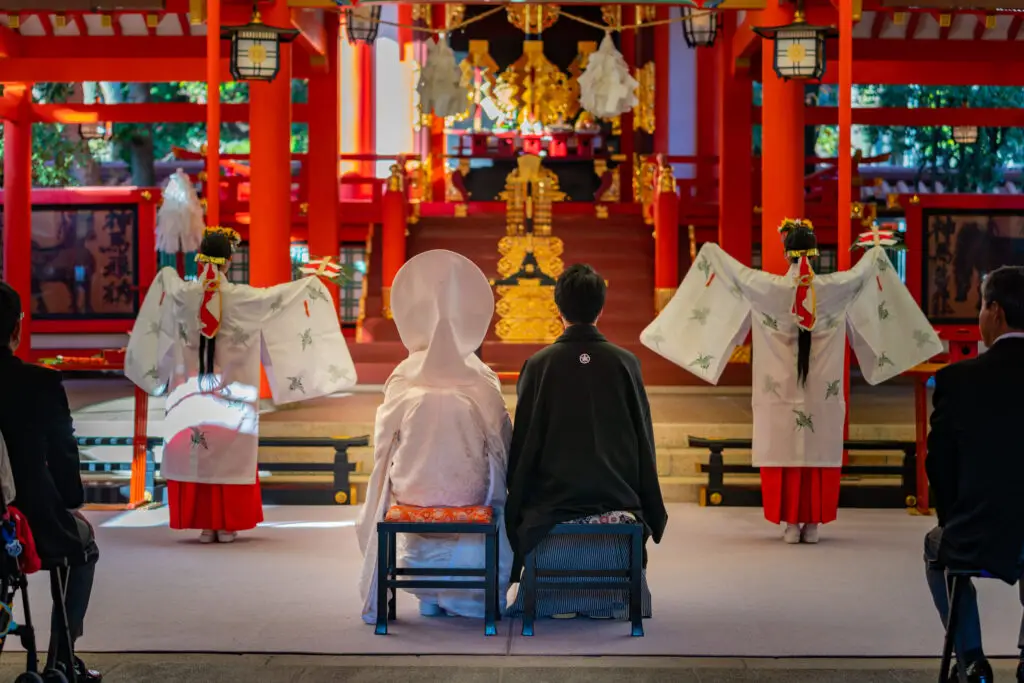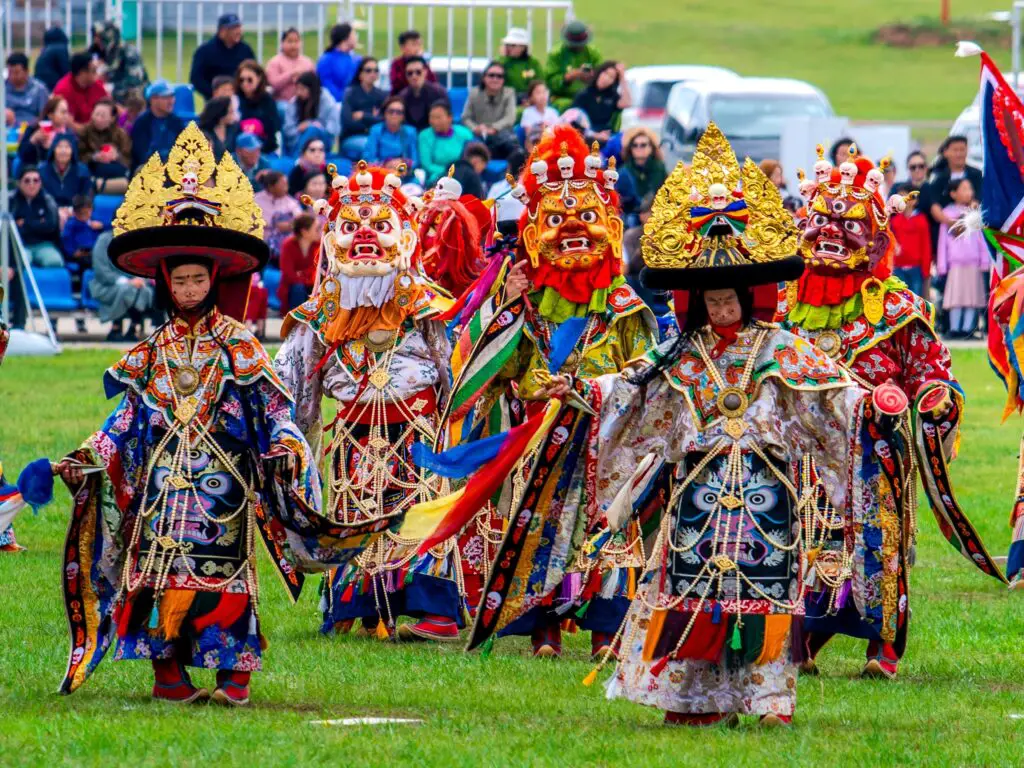1. Japan

Silence in Japan isn’t just golden—it’s a way of life. In a culture that values harmony, staying quiet can be more powerful than speaking up. Whether it’s a business meeting, a train ride, or even dinner with friends, moments of silence aren’t awkward; they’re expected. Japanese people often believe that talking too much can dilute the meaning of words, so they use silence to show thoughtfulness and respect. This is especially true in situations where emotions run high—rather than arguing, someone may simply go quiet. Even in casual conversations, a pause before responding signals that the speaker is carefully considering their words says the Japan Times.
Public transportation in Japan is a perfect example of this silent respect. Trains and buses are often eerily quiet, even when packed with people. No one blares music or talks loudly on the phone, because disturbing others is seen as inconsiderate. In relationships, too, silence is used to communicate feelings. If someone goes quiet after a disagreement, they may not be ignoring you—they’re processing things internally. Silence can be a sign of deep trust and understanding, a way to communicate without the need for constant chatter adds Forbes.
2. Finland

Finns don’t just tolerate silence; they embrace it. Unlike in many Western cultures where silence can feel uncomfortable, in Finland, it’s completely normal to sit in silence with friends or family. Conversations often contain long pauses, but they’re not seen as awkward—just a natural part of communication. Finns believe that words should only be spoken when necessary, and there’s no need to fill every moment with chatter. In fact, being overly talkative can be seen as suspicious or even rude shares BBC.
This appreciation for quiet extends to social settings and even business meetings. A Finnish person pausing before answering a question isn’t being shy; they’re considering their response carefully. Silence can also be a sign of trust—if a Finn is comfortable being silent around you, that’s a good thing. Even in romantic relationships, silence is valued. Sitting quietly together can be just as meaningful as having a long conversation.
3. China

Silence in China is often a sign of deep respect. In traditional Chinese culture, speaking too much, especially in the presence of elders or authority figures, can be seen as disrespectful. People are taught from a young age that silence can show wisdom and humility. Rather than jumping into a conversation with opinions, many prefer to listen first. This is especially true in business settings, where silence can indicate careful consideration rather than hesitation shares RW3 CultureWizard.
In personal relationships, silence can also be a way to avoid conflict. Rather than arguing, people may simply stop talking to signal their displeasure. Silence is also commonly used in negotiations, where an extended pause can be a strategic move. A lack of immediate response forces the other party to rethink their position. While this might feel uncomfortable to outsiders, in China, silence is often a sign of intelligence, patience, and respect.
4. Sweden

In Sweden, silence is part of the national personality. Swedes tend to be reserved and don’t feel the need to fill every pause with words. Conversations often have natural breaks where people simply sit and think. This is not due to shyness but rather a deep respect for thoughtful communication. Silence allows people to process what’s being said without rushing to respond. If a Swede takes a moment before answering, it’s not because they’re unsure—it’s because they’re considering their words carefully.
This cultural preference extends to everyday life. Public spaces like cafés and trains are often quieter compared to other countries. Even in group settings, people don’t feel pressured to talk just for the sake of talking. This can be surprising for visitors who are used to more fast-paced conversations. But in Sweden, silence is just as important as speaking, and sometimes, it says even more.
5. Mongolia

In Mongolia, silence is deeply tied to respect and wisdom. Traditionally, Mongolian nomads spend much of their time in vast, open landscapes where unnecessary noise is avoided. Talking too much is often seen as a sign of immaturity, while silence suggests wisdom and self-control. Elders and leaders are especially known for their quiet nature, and their words carry more weight when they do speak.
Even in social interactions, silence plays a crucial role. If someone falls silent during a conversation, it’s not necessarily a sign of discomfort—it may simply mean they are thinking. In disputes, silence can be a way to de-escalate tension rather than provoke further argument. Silence is also common in hospitality, where hosts and guests may sit together quietly, enjoying the moment rather than filling it with small talk.
6. Russia

Russians tend to be direct when they speak, but they also value silence. In many situations, silence is a sign of seriousness and contemplation. Unlike in some Western cultures where small talk is expected, Russians often see unnecessary chatter as insincere. If a Russian person falls silent in a conversation, they may just be thinking rather than feeling awkward.
This attitude also applies in professional and personal settings. In business meetings, silence can mean someone is carefully considering an offer rather than rejecting it outright. In friendships, comfortable silence is a sign of a strong bond. If someone is quiet, it doesn’t necessarily mean they’re upset—it just means they don’t feel the need to talk all the time.
7. India

In India, silence is often associated with wisdom and spirituality. Many religious and philosophical traditions in India emphasize the power of silence in achieving inner peace. Gurus and spiritual leaders often practice long periods of silence as a form of meditation. This belief extends into everyday interactions, where silence can show respect or deep thought.
In family and social settings, silence can also indicate disagreement without confrontation. Rather than openly challenging someone, an Indian person may simply stay quiet to signal their disapproval. Silence is also a common tactic in negotiations, forcing the other party to speak first. In many ways, knowing when to be silent is just as important as knowing when to speak.
8. Norway

Norwegians are known for their reserved nature, and silence is a big part of that. Talking too much, especially about personal matters, is often seen as unnecessary. Instead, Norwegians prefer meaningful conversations over small talk. Long pauses in conversation don’t make people uncomfortable—they’re just a natural part of communication.
This quiet nature extends to public spaces as well. Public transport, waiting rooms, and even social gatherings often have a level of quiet that outsiders might find unusual. In relationships, Norwegians don’t feel the need to constantly express their emotions verbally. Instead, silence can be a sign of comfort and understanding.
9. South Korea

In South Korea, silence can be a sign of respect, especially in formal settings. Younger people often remain quiet in the presence of elders as a way of showing deference. In workplaces, employees may hesitate to speak up unless directly addressed, not because they lack opinions, but out of politeness.
Silence can also be used as a way to avoid conflict. Rather than openly disagreeing, a Korean person may choose to stay quiet instead. In negotiations, long pauses can be a strategy to make the other side uneasy. Even in friendships, silence doesn’t necessarily mean discomfort—it can simply mean there’s no need for unnecessary words.
10. Canada

While Canadians are often known for being friendly, they also appreciate moments of silence, especially in nature. With so much untouched wilderness, many Canadians grow up valuing quiet spaces. Whether it’s sitting by a lake or hiking through the mountains, silence is a way to connect with the environment. In social settings, silence isn’t necessarily awkward—many Canadians are comfortable letting conversations breathe.
In professional settings, silence can be a sign of thoughtfulness rather than hesitation. In meetings, pausing before responding is common, as people consider their words carefully. Silence is also a tool in negotiations, allowing space for the other person to speak first. Even in relationships, silence isn’t always negative. It can be a sign of trust, where two people are comfortable enough to just be together without constantly filling the air with words.
11. Thailand

In Thailand, silence is deeply connected to the concept of maintaining peace and avoiding conflict. Thai culture places a high value on keeping emotions in check, and silence is often used to prevent unnecessary arguments. If someone falls silent during a disagreement, it doesn’t necessarily mean they’ve given up—it’s more likely a way to keep the situation from escalating.
Respect plays a big role in how silence is used. Younger people often stay quiet when elders are speaking, as a sign of politeness. In social interactions, silence can also indicate deep listening and consideration. Thai people often avoid direct confrontation, so silence can be a way to gracefully navigate tricky situations. This ability to remain silent instead of reacting immediately is seen as a sign of maturity and wisdom.
12. Iceland

Icelanders are known for their calm and quiet nature. In everyday conversations, long pauses are common, and no one feels pressured to fill them with unnecessary words. Small talk isn’t as big a part of Icelandic culture as it is in some other countries, so people are comfortable with silence in social situations. Icelanders also tend to be reserved, and speaking only when necessary is seen as a sign of intelligence rather than hesitation.
This extends into their appreciation for nature. With vast landscapes and a small population, silence is often embraced as a way to connect with the world. Icelanders don’t rush conversations, and moments of quiet reflection are valued. In relationships, silence can be a sign of trust—there’s no need to talk constantly to feel connected. Even in business, a thoughtful pause before responding shows consideration rather than indecision.
13. Bhutan

Bhutan, a country deeply influenced by Buddhist philosophy, views silence as a path to mindfulness. Many Bhutanese people believe that too much talking can distract from deeper understanding. Silence is often used in monasteries as a form of meditation, but it also plays a role in everyday life. People are encouraged to think before they speak, and words are chosen carefully.
In social settings, silence can be a way of showing respect rather than discomfort. Elders and monks are often listened to in silence as a sign of reverence. Bhutanese people also avoid confrontation whenever possible, and silence is one way to maintain harmony. Even in personal relationships, silence doesn’t always indicate anger—it can simply mean someone is reflecting or appreciating the present moment.
